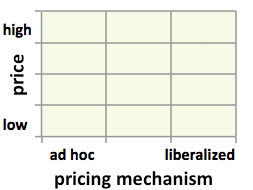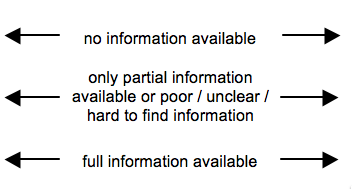Difference between revisions of "Fuel Prices Nepal"
***** (***** | *****) |
***** (***** | *****) |
||
| Line 1: | Line 1: | ||
{{Fuel Price Factsheet | {{Fuel Price Factsheet | ||
|Fuel Price Country=Nepal | |Fuel Price Country=Nepal | ||
| − | |Fuel Pricing Policies="Pricing policy: Government controls fuel prices and subsidizes diesel and LPG, and at times kerosene. Prices of kerosene and diesel have been equalized since Nov 2008. Kerosene, but not diesel, is exempt from a VAT of 13%, a road maintenance cess of Rs 2 (US$0.02)/liter, and a pollution charge of Rs 0.5/liter. Protests following the fuel price increases on Jan 18, 2012, forced government to reduce prices on Jan 26. To make up for losses, Nepal Oil Corporation (NOC), wholly owned by government, introduced higher diesel prices for bulk and industrial users in Aug 2008 but withdrew dual pricing in Oct 2008. NOC re-introduced dual pricing of diesel in Jan 2012, whereby those consuming more than 4,000 liters a week are charged markedly higher unit prices. In early 2011, following a government decision, NOC began providing subsidized diesel to factories and hotels, offering a discount of Rs 1.80 (US$0.02)/liter. On Feb 12, 2013, NOC raised the price of LPG by 43%, but after meeting with various student unions rolled back the price increase on Feb 24, citing lack of preparation of color-coded cylinders and consumer cards. Retail prices of diesel in Kathmandu and benchmark FOB prices relevant to Nepal since 2007 are shown below. The plot shows that the largest subsidies were provided in 2008. In Sep 2012, government announced that students in state colleges would be entitled to price discounts, over and above the subsidies already provided, on four LPG cylinders a year and 10 liters of kerosene a month. In response, students changed the planned one-day strike to protest against price increases on Sep 2 to half-day. | + | |Fuel Pricing Policies="Pricing policy: Government controls fuel prices and subsidizes diesel and LPG, and at times kerosene. Prices of kerosene and diesel have been equalized since Nov 2008. Kerosene, but not diesel, is exempt from a VAT of 13%, a road maintenance cess of Rs 2 (US$0.02)/liter, and a pollution charge of Rs 0.5/liter. Protests following the fuel price increases on Jan 18, 2012, forced government to reduce prices on Jan 26. To make up for losses, Nepal Oil Corporation (NOC), wholly owned by government, introduced higher diesel prices for bulk and industrial users in Aug 2008 but withdrew dual pricing in Oct 2008. NOC re-introduced dual pricing of diesel in Jan 2012, whereby those consuming more than 4,000 liters a week are charged markedly higher unit prices. In early 2011, following a government decision, NOC began providing subsidized diesel to factories and hotels, offering a discount of Rs 1.80 (US$0.02)/liter. On Feb 12, 2013, NOC raised the price of LPG by 43%, but after meeting with various student unions rolled back the price increase on Feb 24, citing lack of preparation of color-coded cylinders and consumer cards. Retail prices of diesel in Kathmandu and benchmark FOB prices relevant to Nepal since 2007 are shown below. The plot shows that the largest subsidies were provided in 2008. In Sep 2012, government announced that students in state colleges would be entitled to price discounts, over and above the subsidies already provided, on four LPG cylinders a year and 10 liters of kerosene a month. In response, students changed the planned one-day strike to protest against price increases on Sep 2 to half-day. This discount program has not been implemented. |
Consequences of subsidies: NOC has been reporting large monthly losses, reaching as high as US$18 million in Jan 2012. In recent months, losses have been dominated by underpricing of LPG. In Dec 2012, NOC proposed a new subsidy mechanism for LPG, which would limit price subsidies to households only who would be entitled to one 14.2-kg cylinder a month at the subsidized price, and deliver the subsidy through a post-purchase cash refund. LPG cylinders for households would be colored red, and other cylinders blue, in addition to households receiving red cards and all other consumers blue cards. | Consequences of subsidies: NOC has been reporting large monthly losses, reaching as high as US$18 million in Jan 2012. In recent months, losses have been dominated by underpricing of LPG. In Dec 2012, NOC proposed a new subsidy mechanism for LPG, which would limit price subsidies to households only who would be entitled to one 14.2-kg cylinder a month at the subsidized price, and deliver the subsidy through a post-purchase cash refund. LPG cylinders for households would be colored red, and other cylinders blue, in addition to households receiving red cards and all other consumers blue cards. | ||
Revision as of 14:50, 15 April 2013
Part of: GIZ International Fuel Price database
Also see: Nepal Energy Situation
Fuel Pricing Policies
| Local Currency: | NPR |
| Exchange Rate: | 71.31
|
| Last Update: |
"Pricing policy: Government controls fuel prices and subsidizes diesel and LPG, and at times kerosene. Prices of kerosene and diesel have been equalized since Nov 2008. Kerosene, but not diesel, is exempt from a VAT of 13%, a road maintenance cess of Rs 2 (US$0.02)/liter, and a pollution charge of Rs 0.5/liter. Protests following the fuel price increases on Jan 18, 2012, forced government to reduce prices on Jan 26. To make up for losses, Nepal Oil Corporation (NOC), wholly owned by government, introduced higher diesel prices for bulk and industrial users in Aug 2008 but withdrew dual pricing in Oct 2008. NOC re-introduced dual pricing of diesel in Jan 2012, whereby those consuming more than 4,000 liters a week are charged markedly higher unit prices. In early 2011, following a government decision, NOC began providing subsidized diesel to factories and hotels, offering a discount of Rs 1.80 (US$0.02)/liter. On Feb 12, 2013, NOC raised the price of LPG by 43%, but after meeting with various student unions rolled back the price increase on Feb 24, citing lack of preparation of color-coded cylinders and consumer cards. Retail prices of diesel in Kathmandu and benchmark FOB prices relevant to Nepal since 2007 are shown below. The plot shows that the largest subsidies were provided in 2008. In Sep 2012, government announced that students in state colleges would be entitled to price discounts, over and above the subsidies already provided, on four LPG cylinders a year and 10 liters of kerosene a month. In response, students changed the planned one-day strike to protest against price increases on Sep 2 to half-day. This discount program has not been implemented.
Consequences of subsidies: NOC has been reporting large monthly losses, reaching as high as US$18 million in Jan 2012. In recent months, losses have been dominated by underpricing of LPG. In Dec 2012, NOC proposed a new subsidy mechanism for LPG, which would limit price subsidies to households only who would be entitled to one 14.2-kg cylinder a month at the subsidized price, and deliver the subsidy through a post-purchase cash refund. LPG cylinders for households would be colored red, and other cylinders blue, in addition to households receiving red cards and all other consumers blue cards.
Protests: Protests against fuel price hikes by students are common.
Information: NOC posts historical fuel prices going back to 1996, current prices at 13 locations, monthly losses for each fuel per liter and in total, and the price structure for each fuel. In 2012, the highest monthly loss occurred in Apr, amounting to US$19 million. "
(Source: Kojima, Masami. (2013, forthcoming). “Petroleum product pricing and complementary policies:Experience of 65 developing countries since 2009.” Washington DC: World Bank.)
Fuel Prices and Trends
| Gasoline 95 Octane | Diesel | |
|---|---|---|
| in USD* |
|
|
| in Local Currency |
|
|
* benchmark lines: green=US price; grey=price in Spain; red=price of Crude Oil
Fuel Price Composition
Price composition for one litre of Gasoline 95 Octane as of 2011/05/01.

- Handling Costs includes transportation and storage (NPR 1.85), technical maintenance (NPR 0.91), service station costs (NPR 1.06), interest expenses (NPR 1.01) and administrative expenses (NPR 0.5).
- Details on fuel taxes and duties are missing yet, only the aggregated value shown is available on Netal Oil website; hints welcome!
Source: http://www.nepaloil.com.np/main/?opt1=sellingprice&opt2=profitloss
At a Glance
| Regulation-Price-Matrix |
| ||||
 |

|

|

| ||
Sources to the Public
| Type of Information | Web-Link / Source |
|---|---|
| Other Information | http://www.nepaloil.com.np |
| Price Composition | http://www.nepaloil.com.np/main/?opt1=sellingprice&opt2=profitloss (In Hindi language only) |
| Pump prices and margins | http://www.nepaloil.com.np/main/?opt1=sellingprice&opt2=sellingprice |
| Pump prices and margins | http://www.nepaloil.com.np/main/?opt1=sellingprice&opt2=previoussellingprice |
Contact
Please find more information on GIZ International Fuel Price Database and http://www.giz.de/fuelprices
The following coordinate was not recognized: {{#geocode: Nepal|google }}.



















